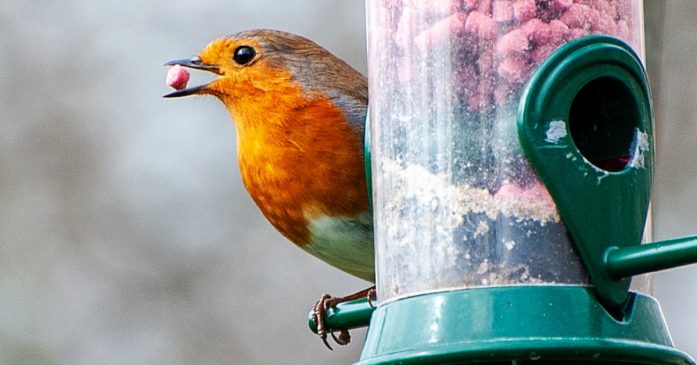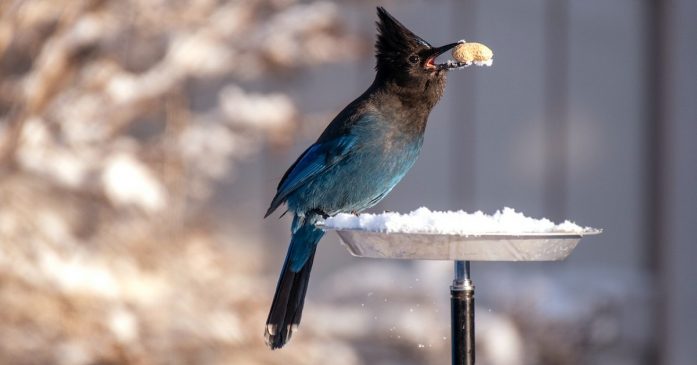Vetpharmacy.co.uk Cookie Policy : We use cookies to enhance your user experience. To find out more please view our cookie policy
What's the Best Way to Choose Healthy Bird Food?

Birds require a balanced diet to maintain their health and well-being. Bird food provides essential nutrients like proteins, carbohydrates, vitamins, and minerals that birds need to survive. They need a lot of energy to fly, hunt for food, and maintain their body temperature. This food provides a source of energy for birds to carry out these activities. Keep reading to find out how you can choose the best bird food.
Factors to consider when choosing bird food
When choosing bird food, there are several factors to consider:
Type of Bird
Different bird species have different dietary needs. Some birds prefer seeds, while others prefer suet, nectar, or insects. Before choosing bird food, research the species of birds in your area and their preferred diet.
Quality
The quality of food can vary widely. Look for food that is fresh, free from mould and insects, and sourced from reputable manufacturers. One of the most recommended is Harrison's High Potency Coarse Bird Food. It's organically formulated to provide a completely balanced range of essential nutrients.
Nutritional Value
Birds require a balanced diet to maintain their health and well-being. Look for food that is high in protein, carbohydrates, vitamins, and minerals.
Price
The food can range in price from a few pounds to several hundred pounds. Set a budget and look for food that fits within your budget.
Storage
Proper storage of bird food is essential to maintain its freshness and nutritional value. Look for food that comes in airtight packaging and store it in a cool, dry place.
Environmental Impact
Consider the environmental impact of the food you choose. Look for food that is made from sustainable and environmentally-friendly sources.
By considering these factors when choosing food for your bird, you can ensure that you are providing your feathered friends with a healthy and nutritious diet that meets their needs.
Nutritional needs of birds
A pet bird has to eat, digest, and absorb balanced amounts of vitamins and minerals in order to be adequately nourished. Your bird absorbs a variety of nutrients-rich ingredients in the food that they eat.
Nutrients fall into six main categories:
- Water
- Proteins
- Carbohydrates
- Lipids
- Minerals
- Vitamins
Because the natural foods that constitute your bird's diet contain these complex elements, digestion is required in order to liberate the raw ingredients from which they are formed. The trillions of single cells in the bird's body can be nourished by these building blocks after they have been released throughout the digestive process.
Tips for feeding birds
Feeding birds can be a rewarding and enjoyable activity. Here are some tips to help you feed birds in a safe and responsible way:
Use specialised bird feeders
Different bird species have different feeding habits, and specialised feeders can help attract specific bird species.
Clean your feeders regularly
Bird feeders can harbour bacteria and other pathogens that can harm birds. Clean your feeders regularly with hot soapy water and rinse thoroughly.
Provide fresh water
Birds need water for drinking and bathing. Provide a shallow bird bath or a small water feature in your backyard to attract birds.
Offer a variety of food
Different bird species have different dietary needs, so offer a variety of food types to attract a diverse range of birds.
Place feeders in a safe location
Place bird feeders in a location that is safe from predators, such as cats, and away from windows that birds may fly into.
Do not use pesticides
Pesticides can harm birds and other wildlife. Avoid using pesticides in your backyard and choose food that is free from harmful chemicals.

Where can I get the best bird food?
Shop online at Vet Pharmacy today for the best healthy food for your bird. We have food such as Harrison's Recovery Bird Food for birds that are recovering from pan-systemic failure.
Shop Now
This blog post was written on behalf of Vet Pharmacy by Pharmacy Mentor